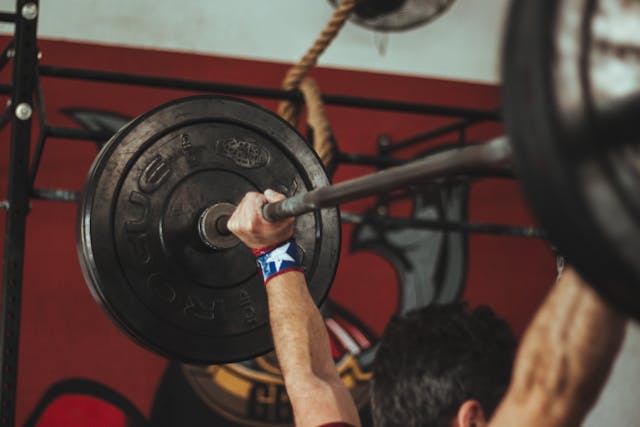Key takeaways
- Smoking's nicotine content makes it highly addictive.
- Dangerous chemicals in cigarettes impact skin, lungs, hormones.
- Cigarette smoke affects libido and hormonal production.
- Chemicals in smoke disrupt hormone pathways, cause oxidative stress.
- Quitting smoking prioritizes health and hormone levels
Smoking is a dangerous habit, yet it’s tough to kick due to nicotine’s addictive nature. We all know cigarette smoking can damage your skin, lungs, stomach, blood, and overall health, but not everyone realises it can also mess with your hormones, including testosterone.
For men, it can lower testosterone levels, which are crucial for libido and muscle strength. For women, it can throw off hormones that affect fertility and menstrual cycles.
But how exactly does smoking affect your testosterone levels? And what can you do about it? Read on to have a closer look.
The Role of Testosterone in the Body
The impact of smoking on testosterone levels knows no gender. Testosterone is essential for everyone, affecting not just physical traits like muscle growth, bone strength, and overall energy, but also your mental and emotional well-being.
Chat to a prescriber
Bulk-billed phone consultations
TGA-authorised clinicians
Nicotine vaping scripts available
Men naturally have higher levels of testosterone, but it’s still crucial for women, just in smaller amounts. When smoking messes with these hormone levels, it can cause physical issues like reduced muscle mass, increased fat, and, for men, erectile dysfunction.
But it doesn’t stop there—lowered testosterone can also take a toll on your mental and emotional health, leading to mood swings and even depression in more serious cases.
How Does Smoking Increase Testosterone, If It Does at All?
Getting a grip on how smoking affects testosterone is crucial, especially with all the debates and studies around it. The chemicals in cigarette smoke can interact with testosterone in various ways, either boosting or lowering hormone levels depending on different factors.
For instance, one study looked at over 3,200 men who smoked regularly and found that as their cigarette intake went up, their testosterone levels also increased by about 15%. At first glance, this might suggest a positive link, but the reality is far more complex.
Another analysis, which pooled data from 22 studies involving around 13,000 men and 6,000 women, showed that smoking slows down the breakdown of androgen, a hormone found in both men and women. This slower breakdown could explain the rise in testosterone levels among smokers, but it doesn’t necessarily mean smoking is good for your hormones—it just highlights how nicotine can temporarily affect hormone levels.
In a different study from Taiwan, 13 male national-level baseball players who had never smoked or used nicotine before were given nicotine replacement therapy (NRT) gums before training.

The results showed improved cognitive performance, accuracy, and reaction times, but no real change in muscle strength. This suggests that nicotine might not do much to boost testosterone levels in athletes, particularly when it comes to building muscle.
Meanwhile, research from Sweden looked at men who used ‘snus,’ a type of nicotine-rich, non-smoking tobacco product. The study found that these men had a 10% lower chance of conceiving compared to non-users, likely due to a reduced sperm count.
These studies show just how complicated the connection between smoking and testosterone is.
While smoking might cause a temporary spike in testosterone, the overall effects—especially on fertility and general health—are far from positive. Being aware of these nuances can help you make better choices for your well-being.
Does Nicotine Increase Testosterone: The Actual Effects of Nicotine
While the mechanisms through which nicotine might influence testosterone levels are not entirely understood, there are some proposed theories worth looking into about it.
The Disruption of Hormone Pathways: Nicotine disrupts hormone pathways, specifically those responsible for the production of testosterone. Smoking may interfere with these intricate pathways, causing the possible overproduction or underproduction of testosterone. This disruption may contribute to the hormonal fluctuations observed in regular smokers.
Free Radicals/Oxidative Stress: Cigarette smoke increases the level of free radicals in the body, causing oxidative stress. These unstable molecules can cause damage to your cells, proteins, and DNA. This can also extend to the endocrine system, affecting the delicate balance of hormones.
Enzyme Inhibition: Enzymes play a pivotal role in the body’s biochemical processes, such as breaking down food in the gut and absorbing essential vitamins. It also has a role in the production and breakdown of hormones. Smoking may interfere with certain enzymes crucial for testosterone synthesis or metabolism, which can increase or decrease hormone levels.
Does Vaping Increase Testosterone?
While vaping products usually contain nicotine and can possibly achieve the same effect on testosterone as smoking, it may do so with less impact because these products don’t have the same dangerous chemicals as tobacco.
Does Quitting Smoking Increase Testosterone?
While it’s logical to expect a potential increase or balance in your testosterone levels after quitting smoking, it’s essential to recognize that smoking is just one piece of the puzzle. Factors such as body mass index (BMI), diet, and comorbidities also play significant roles in hormonal balance.
Overweight and obese men tend to have poor hormone balance compared to their counterparts, possibly even after quitting smoking. In one study, high-protein diets were also found to decrease testosterone in men.
Lastly, if you have any comorbidities or chronic conditions, it’s highly likely your hormone levels will drop as your body prioritises your survival over hormonal balance.

Other Ways To Boost Testosterone After Quitting Smoking
Given how some studies seem to show cigarettes can increase male testosterone levels, smoking is still a dangerous habit that is highly addictive. It’s the primary cause of COPD, heart problems, and other preventable burdens, especially as you grow older.
A quick boost for your testosterone now isn’t worth the price your body would pay for the long-term consequences of smoking.
A well-balanced testosterone level ensures your body is in top shape without the aid of cigarettes. Here are other, more effective ways to boost your testosterone levels rather than cigarette smoking.
Quit Smoking Altogether
It’s always a good time to stop smoking for good – even if you’re already decades into tobacco, it’s never too late. Here are the steps to help you immediately quit smoking and improve your health.
Go Through First-Line Solutions First
Some motivated smokers can handle cold turkey just fine and see success within a few tries, but oftentimes, smokers have strong withdrawals that can draw them back to lighting a stick.
That’s where nicotine replacement therapy (NRT) products come in. These are readily available and stocked at your local pharmacy.
NRT products are the most trusted quitting option available for motivated smokers. They might not imitate cigarettes, but they contain a small dose of nicotine that may be enough to alleviate your withdrawals. These come in the form of patches and gums for easy and convenient nicotine delivery.
While NRTs can be effective, they don’t work for everyone. If these haven’t done the trick for you, you may be eligible for a nicotine prescription to use nicotine vaping products (NVPs).
Chat to a GP
As mentioned, NRT products have worked for many successful ex-smokers. But, you might have ingrained behaviours and triggers that only something that mimics a cigarette can successfully address, such as the hand-to-mouth motion, and needing something to use while having a drink with friends.
That is where NVPs become very handy in helping you fight the urge to consume tobacco.
You need a nicotine prescription before you can purchase NVPs, so you’ll need to consult with a GP to help you on your smoking cessation journey.
And, if your GP deems it necessary, they can write you a nicotine prescription for NVPs.
You can chat to your usual GP more about this.
Visit Your Local Pharmacy
Once you have your nicotine prescription, you can pop down to your local pharmacy. Over 2,200 pharmacies across Australia hold these products in-store, but any pharmacy can order these in for you if they don’t currently stock them.
Both your pharmacist and GP can advise you on how best to use the product, such as the initial setup, and the number of puffs to take when you feel withdrawals.
Adopt a Healthier Lifestyle
Obesity and a sedentary lifestyle are also other factors that affect your testosterone levels. The best way to get a boost without smoking is to exercise regularly, eat a good diet, and avoid excessive alcohol consumption. Getting sufficient sleep and reducing stress levels through meditation can also help you improve your testosterone levels.
See an Endocrinologist
If you’ve found your testosterone levels have significantly dropped during a general check-up, you must see an endocrinologist as soon as possible. They specialise in hormone-related issues and can provide personalised guidance and potential interventions to optimise hormonal balance.

Summary
Smoking might give you a small testosterone boost, but it’s not worth the risk. It’s better to stick with a balanced hormone level that keeps your entire body in good shape to ensure you remain healthy and produce testosterone at sufficient levels at any age.
If quitting smoking is quite challenging for you, we can help you.
Smokefree Clinic gives you access to many medically reviewed and trustworthy resources that can inform and aid you in your path to wellness, so have a look around!
If you’re ready to get started, Smokefree can connect you to Australian healthcare professionals who excel in helping patients quit smoking for good.
Link Reference
- https://pubmed.ncbi.nlm.nih.gov/17163954/
- https://www.sciencedirect.com/science/article/abs/pii/S0091743515003941?via%3Dihub
- https://www.ncbi.nlm.nih.gov/pmc/articles/PMC8745004/
- https://www.ncbi.nlm.nih.gov/pmc/articles/PMC9543234/
- https://pubmed.ncbi.nlm.nih.gov/36266956/
- https://www.ncbi.nlm.nih.gov/pmc/articles/PMC4476341/
- https://www.tandfonline.com/doi/abs/10.1080/17446651.2023.2184797

